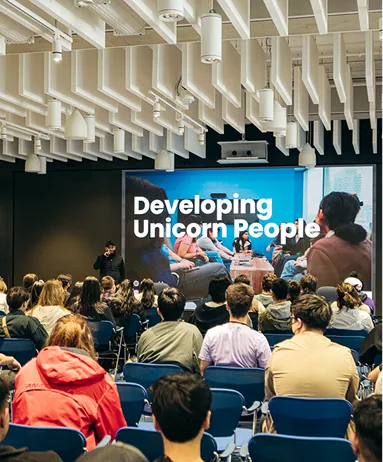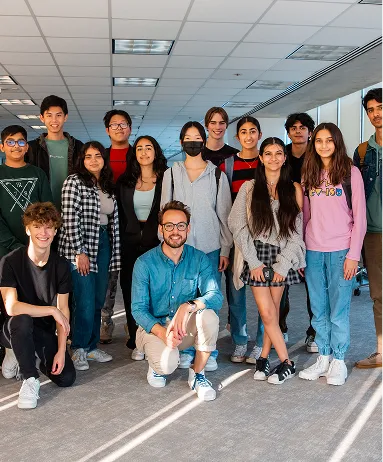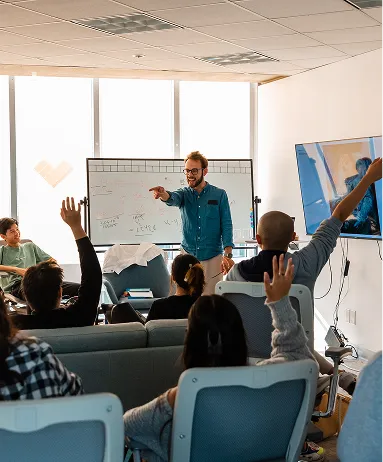The idea of a unicorn company—a startup worth over a billion dollars—has become a common benchmark for success in business. But what if we applied the same thinking to people? What if, instead of measuring value in dollars, we measured it in impact?
At The Knowledge Society (TKS), we focus on training unicorn people—individuals capable of impacting a billion lives. But this concept isn’t new. Throughout history, certain individuals have fundamentally reshaped industries, challenged conventional wisdom, and built the foundations for the world we live in today. The question is: What can we learn from them?
The Patterns of World-Changers
History is filled with individuals who changed the course of human progress—not by following existing systems, but by redefining them. Some key patterns emerge when we examine these figures:
- They saw beyond their time. Leonardo da Vinci wasn’t just a painter; he conceptualized flying machines centuries before human flight. Alan Turing didn’t just solve complex mathematical problems; he laid the foundation for modern computing. Unicorn people don’t just contribute to existing fields—they expand what’s possible.
- They connected ideas across disciplines. Marie Curie didn’t just study physics—she merged it with chemistry to pioneer radioactivity research. Steve Jobs wasn’t just a technologist; he understood design, business, and psychology. The most impactful people don’t stay in one lane; they find intersections between fields and create entirely new domains.
- They acted before the world was ready. The Wright brothers built a flying machine when people thought it was impossible. Grace Hopper created the first compiler when programming was still in its infancy. These individuals didn’t wait for permission—they acted on conviction.
The Next Generation of Unicorn People
If we know these patterns exist, the next question is: Who are the unicorn people of the future?
The world’s biggest challenges—climate change, synthetic biology, AI ethics, space exploration—will require thinkers who aren’t confined by today’s constraints. The unicorn people of the next 50 years will be the ones who:
- Develop “future literacy.” Understanding today’s cutting-edge fields isn’t enough. Tomorrow’s most impactful people will recognize what doesn’t exist yet—and start building it.
- Use exponential tools. CRISPR, quantum computing, artificial intelligence—these aren’t just academic concepts. They’re tools that will fundamentally reshape human capability. Those who learn how to wield them will define the future.
- Think in long-term impact. What separates a trend from a revolution? Unicorn people don’t chase short-term gains. They work on ideas that compound over decades.
Why This Matters Now
For most of history, access to knowledge and opportunity was limited. Today, that’s no longer true. The biggest challenge isn’t a lack of information—it’s a lack of awareness about what’s possible.
If more young people were exposed to the right ideas, people, and tools early on, we’d see a world where more breakthroughs happen faster. The next Einstein, the next Curie, the next Turing might already exist—but are they in the right environment to develop?
The question isn’t whether unicorn people will exist in the future. The question is whether we’re creating the conditions for them to emerge.
History shows us what’s possible. The future depends on whether we act on it.
.avif)

.avif)







